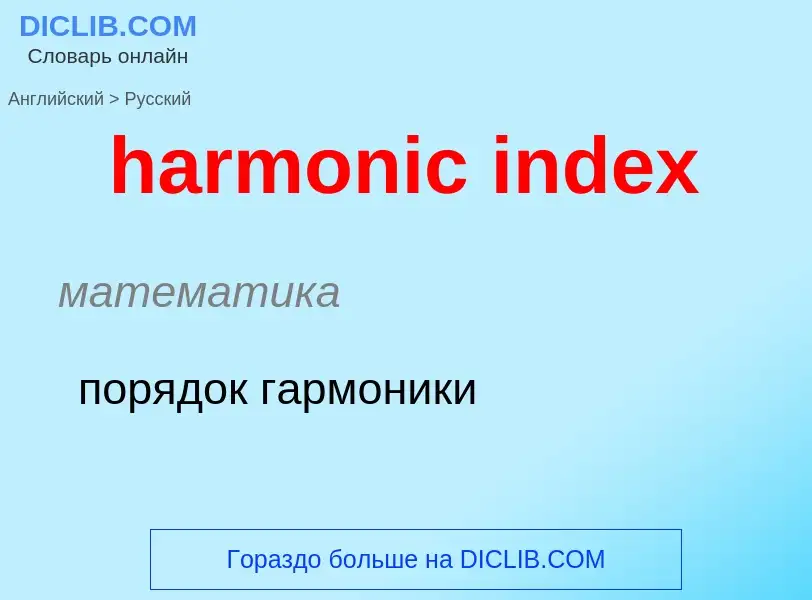Μετάφραση και ανάλυση λέξεων από τεχνητή νοημοσύνη
Σε αυτήν τη σελίδα μπορείτε να λάβετε μια λεπτομερή ανάλυση μιας λέξης ή μιας φράσης, η οποία δημιουργήθηκε χρησιμοποιώντας το ChatGPT, την καλύτερη τεχνολογία τεχνητής νοημοσύνης μέχρι σήμερα:
- πώς χρησιμοποιείται η λέξη
- συχνότητα χρήσης
- χρησιμοποιείται πιο συχνά στον προφορικό ή γραπτό λόγο
- επιλογές μετάφρασης λέξεων
- παραδείγματα χρήσης (πολλές φράσεις με μετάφραση)
- ετυμολογία
harmonic index - translation to ρωσικά
математика
порядок гармоники
общая лексика
частота гармоник
биоакустика
частота гармоники
Ορισμός
Βικιπαίδεια
In mathematics, the n-th harmonic number is the sum of the reciprocals of the first n natural numbers:
Starting from n = 1, the sequence of harmonic numbers begins:
Harmonic numbers are related to the harmonic mean in that the n-th harmonic number is also n times the reciprocal of the harmonic mean of the first n positive integers.
Harmonic numbers have been studied since antiquity and are important in various branches of number theory. They are sometimes loosely termed harmonic series, are closely related to the Riemann zeta function, and appear in the expressions of various special functions.
The harmonic numbers roughly approximate the natural logarithm function: 143 and thus the associated harmonic series grows without limit, albeit slowly. In 1737, Leonhard Euler used the divergence of the harmonic series to provide a new proof of the infinity of prime numbers. His work was extended into the complex plane by Bernhard Riemann in 1859, leading directly to the celebrated Riemann hypothesis about the distribution of prime numbers.
When the value of a large quantity of items has a Zipf's law distribution, the total value of the n most-valuable items is proportional to the n-th harmonic number. This leads to a variety of surprising conclusions regarding the long tail and the theory of network value.
The Bertrand-Chebyshev theorem implies that, except for the case n = 1, the harmonic numbers are never integers.









